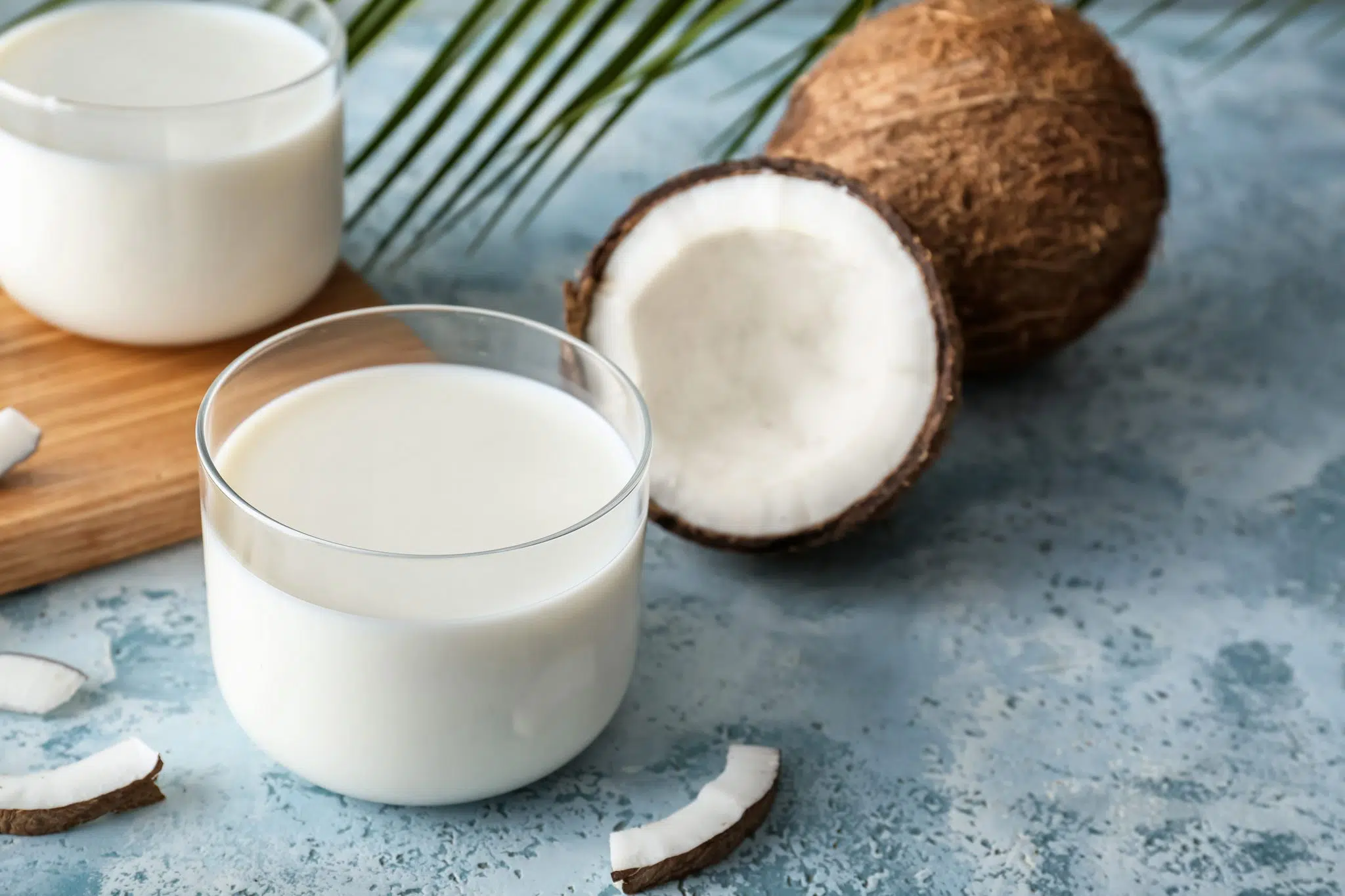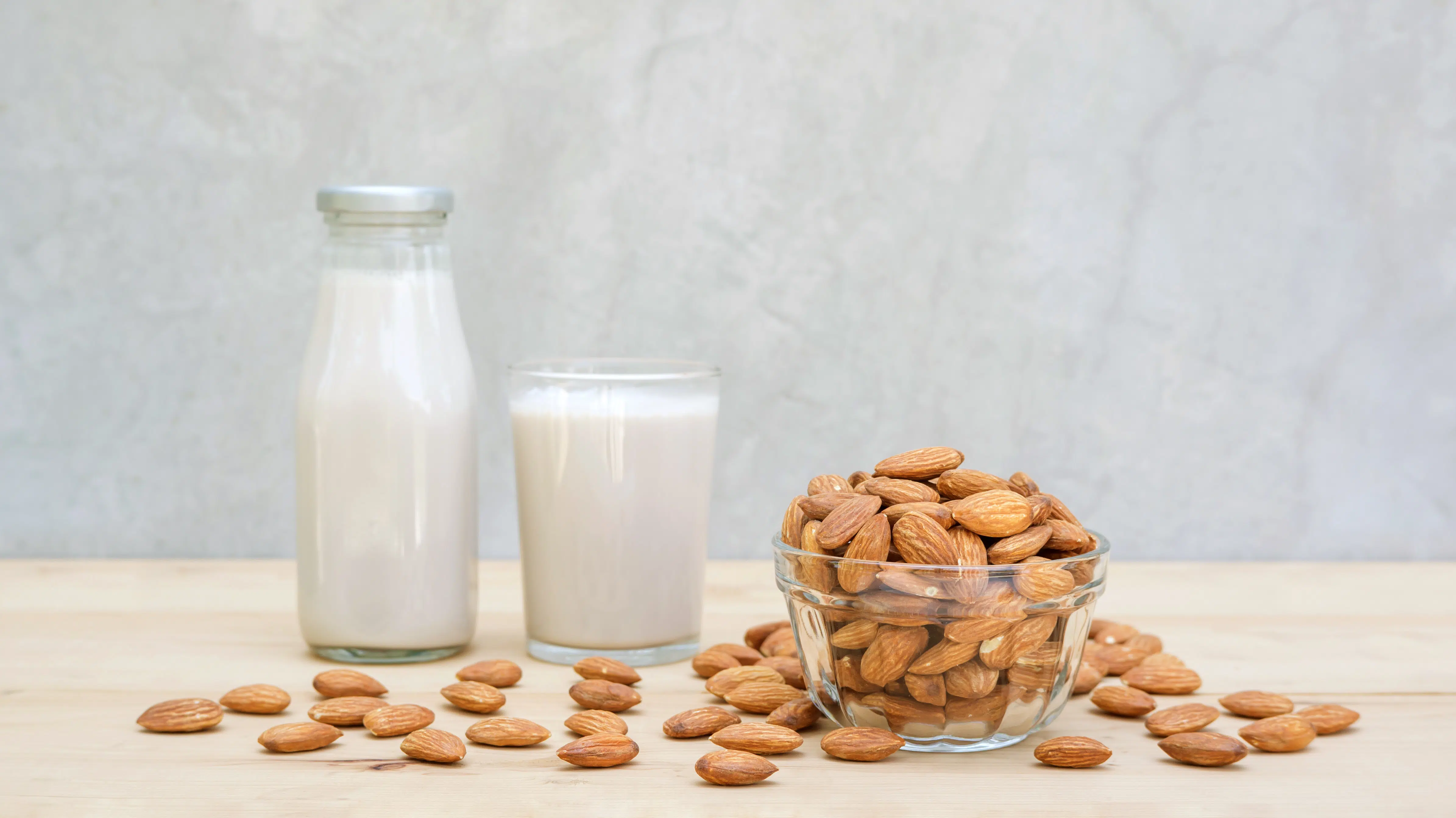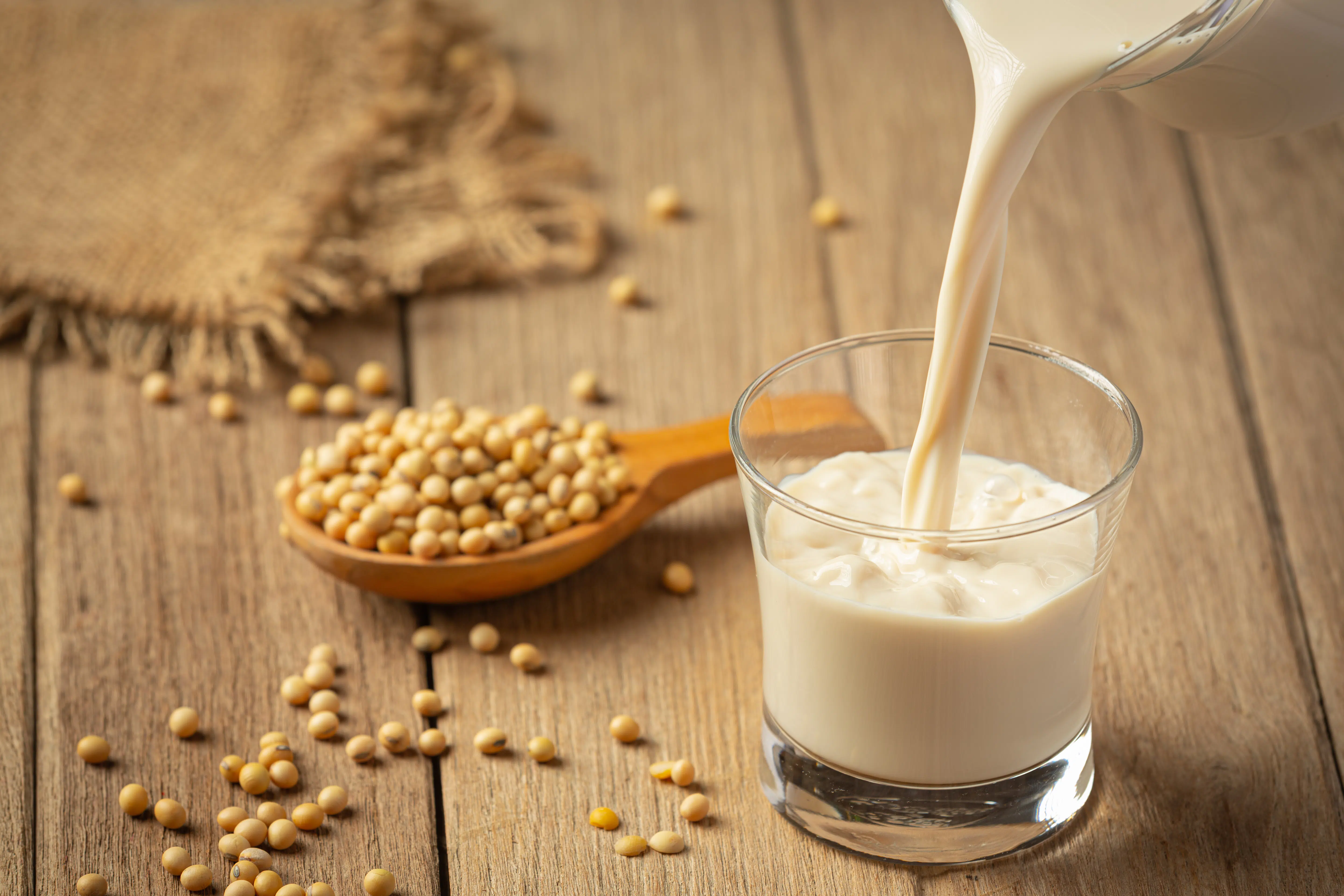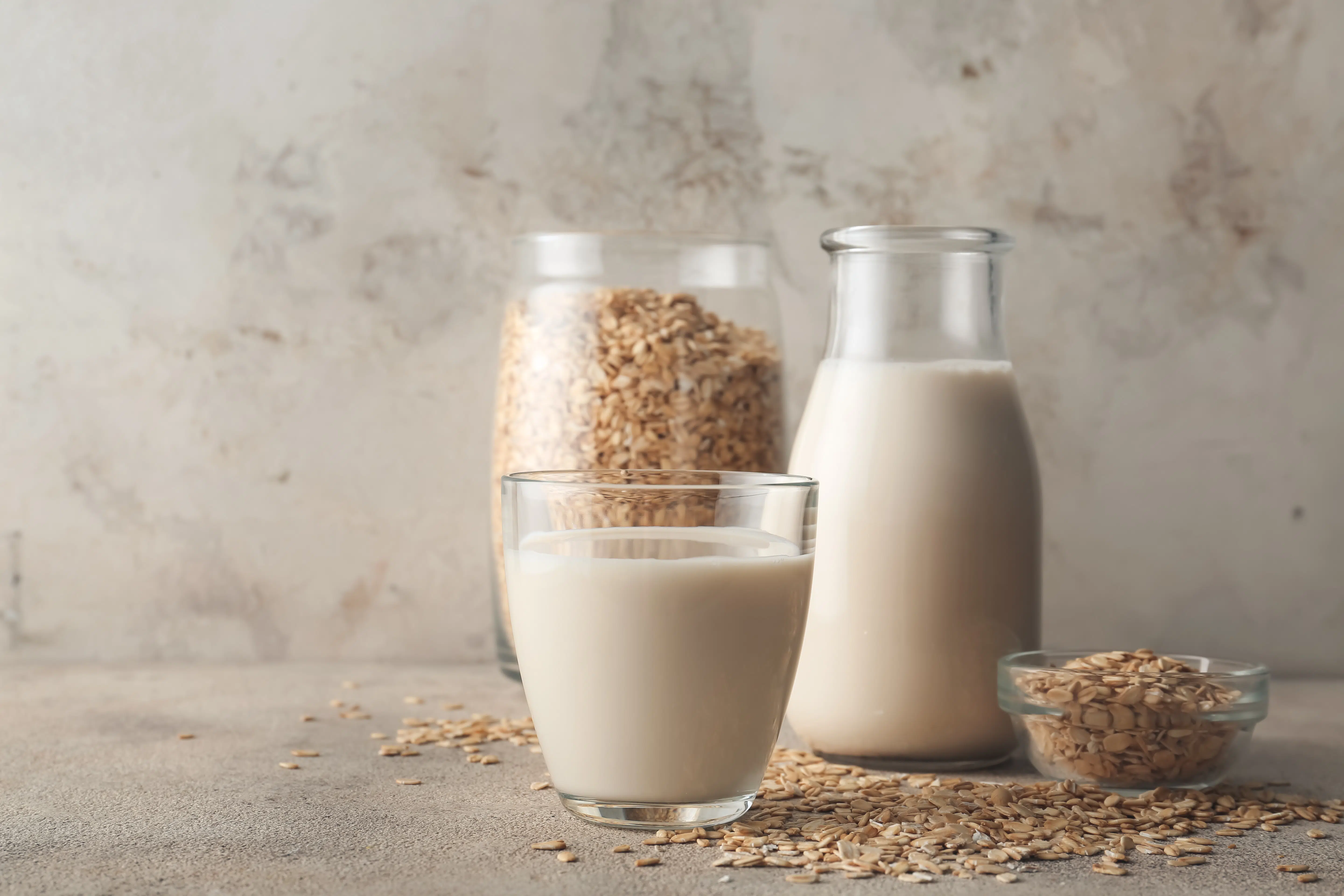Dairy-Free Milks to Enhance Your Coffee Experience

More and more people are leaving dairy milk behind in favour of dairy-free alternative. You might be thinking "Well why don't they have their coffee black then?". Well that would mean missing out on some absolutely delicious drinks and flavour combinations, wouldn't it? At Henry's Coffee we love coffee in all of its forms, that's why we love plant-based milks! And it seems like the British people agreed with us. Indeed, according to the Vegan Society, plant milk is big business in the UK, with a market worth £320.6 million in 2019. It makes about 15% of the whole European market. According to the Vegan Society still, the value of the plant-based milk market is expected to have more than doubled by 2025, hitting £705.3 millions.
What is it about milk that is so important?
Traditionally, protein molecules make up the vast majority of the milk we consume. Even though the amount of proteins in the milk varies depending on the variety, when heated they 'melt', trapping the air and causing it to 'stretch' until it becomes a foam.
Coffee experts and plant-based milk makers are constantly experimenting in order to get the perfect cup. If you're a coffee connoisseur, chances are have already experimented with dairy-free milk. If you are a seasoned vegan or suffer from dairy allergy, you probably already have definite preferences. In any case, we're confident you'll love our favourite plant milks as much as we do.
So which plant-based milks are our favourites?
Coconut

If you are looking for richness, smoothness and a naturally sweet and nutty milk, coconut is what you need. Coconut milk is quite dense and creamy making it is a good candidate for making foam and froth. Another good point is that it is rich in healthy fats, vitamins C, B1 and B6.
The flavour of coconut is quite distinctive and prominent. Some will love it in coffee some won't. You could argue that it distracts from the flavours of the coffee, we think it depends on the type of coffee being served. Something is for sure, it boosts flavour by providing an exotic-like experience without the need of artificial flavourings or sweeteners.
Almond

Almond milk is a quite popular option. You can pick between sweetened and unsweetened.
Almond milk is obtained by simply blending almonds and water together and then filtering the mix. It has a lovely nutty flavour with a roasted light bitter aftertaste. Which is why some people prefer the sweetened form of almond milk for their everyday consumption. Almond milk is naturally abundant in many vitamins and minerals and is low in fat and sugar (the unsweetened version of course).
If you want to add a layer of flavour to your coffee, almond milk is the way to go. However, keep in mind that it is a rather watery plant-milk.
Soy

Soy milk is a great source of protein and has a super creamy and smooth texture. It is a very popular option because of its richness and mild flavour.
Soy milk finds it origins in China where is has been consumed since at least AD25. It became really popular in the wester world in the later half of the 20th century.
Soy milk has a long and illustrious history as one of the most popular dairy-free milk alternatives. The majority of coffee businesses will be well-versed in it, including us! There are several significant selling features for this product, including its accessibility and affordability, as well as its high protein content.
Although the flavour is subtle, the aroma is pleasant. This is an advantage for baristas because they know it will not affect the flavour of the coffee they are serving.
In addition to having similar protein levels to dairy milk and performing similarly when heated, soy milk is a popular substitute to dairy milk because it is easy to reproduce the silky frothy textures of dairy milk. However, it may curdle as a reaction to the acidity or warmth of the coffee, so be careful when using at home, we recommend popping to your favourite barista or coffee shop!
Oat Milk

Last but not least, oat milk, our absolute favourite!
Oat milk is made by soaking the oats in water for several hours, then blend and filter the mix.
The finished result is naturally sweet, smooth, thick, rich and creamy. Oat milk has a number of healthy components, including the fact that it has no saturated fat and is high in protein and fibre. Oats also include beta-glucans, which are beneficial to heart health by decreasing cholesterol and lowering blood pressure. One serving will also provide you with 10% of your necessary daily iron intake.
It cooks evenly and does not curdle, making it an excellent choice for cooking and hot drinks.
As was to be expected, oat milk has a distinct wheaty and nutty flavour to it. Its malty undertones will ravish coffee lovers. Oat milk is most definitely dairy milk's most formidable competitor.
It does stretch well and produces a wonderful froth, but it does have the potential to split, as do many other plant-based milks.
Bonus
Giving up dairy, or animal products entirely, doesn’t mean having to forgo our morning coffee. Even if we prefer frothed milk drinks like latte and cappuccino, there are still plenty of plant-based options that hit the spot both in terms of texture and flavour. Here we are going to go through what the best vegan milks are to add to coffee, as well as which plant-based milks froth and steam up the best for speciality coffee drinks.
Why Does Dairy Milk Go Well With Coffee?
Dairy milk goes well with coffee because of:
- Its fat content: Milk’s 2% fat content means that just a splash is enough to give your coffee significantly more body.
- Its protein content: The protein in dairy milk binds to the bitter-tasting tannins in coffee. This rounds out your coffee’s bitter notes. Coffee also stretches when steamed because of the protein in it.
- Its high splitting temperature: Milk can handle temperatures close to 100 Celsius before it splits. This means that you can add it to a freshly brewed coffee without it developing an unpleasant graininess.
- Its relatively neutral flavour: Milk’s neutral flavour means that you can add it to coffee without dulling your coffee’s complex flavour profile.
Below is a table showing how all the common plant-based milks compare to dairy in the criteria that I’ve outlined above. I’ve also included each milk’s sugar content as this is relevant to how well it steams – something I’ll talk about later.
What is the Best Plant Milk To Add to Filter Coffee?
The best plant milks to add to coffee are oat milk, cashew milk or pea milk.
Each milk has a slightly different fat and protein makeup to dairy, so behaves slightly differently to dairy milk when added to coffee.
I’ll quickly run through how these different milks behave when added to coffee:
- Oat milk: Oat milk has significantly less fat in it than dairy so you’ll need to add a bit more of it to your coffee to achieve the same body as you would with dairy milk.
- Cashew milk: Cashew milk has more fat in it than dairy, so you’ll want to add less of it to your coffee (unless you want a creamy drink, which can be nice sometimes).
- Pea milk: Pea milk lacks the sweetness of dairy so you might want to add a small amount of sugar or sweetener if you are using this instead of dairy.
Soy milk can also be a good option to add to coffee but just beware of its low splitting temperature. You’ll want to wait until your coffee is at drinking temperature before you add soy milk to it because otherwise, it can go all grainy.
What is the Best Plant Milk For Steaming and Frothing?
To steam and froth well, a plant milk needs to:
Have a protein content of at least 2%: Milk increases in volume when steamed because its proteins stretch. If it has very little protein then it won’t stretch when steamed.
Have a fat content of under 2.5%: Fat impedes the ability of proteins to stretch when exposed to heat. This is why skimmed milk can foam up much more than semi-skimmed.
Handle temperatures over 60 Celsius without curdling: Baristas generally steam milk to 60 Celsius and you don’t want your milk to even approach splitting at this point.
Have some sugar in it: Steamed dairy milk is sweet because heat breaks down its lactose into sweeter sucrose. Sweeter plant milks will be closer to steamed dairy in flavour.
The milk that best ticks all these boxes, and is therefore best for frothing and steaming is oat milk. It’s not a coincidence that the majority of coffee shops use oat milk to make their lattes and cappuccinos. Coconut milk can also steam well, however, this has a very strong flavour. A coconut milk latte will taste very different from one made with dairy (or oat) milk. Some people love it, some people hate it.
What are Barista Milks?
If you’ve been drinking plant-based milk for a while you may have noticed that producers have started to make specialist “barista milks”. These are just plant milk (usually oat milk) with pea protein added to them so they can be stretched more. They foam up significantly better than plain oat milk and I’d recommend them if you have a latte machine at home and are going to be steaming milk regularly. Califia Farms makes an excellent barista oat milk that is perfect for steaming and frothing. If you are just going to be adding milk to coffee then you can just stick to regular plant milk as barista milks are significantly more expensive than regular plant milks.
Final Thoughts
The best plant milk to have with coffee is oat milk. Oat milk is great to add to filter coffee and to steam up for lattes.
If you are holding an event, be sure to keep a few cartons of oat milk at your coffee station for plant-based attendees and if you are planning an event and would like to have someone else handle all of the logistics feel free to call, email or fill out a contact form.


